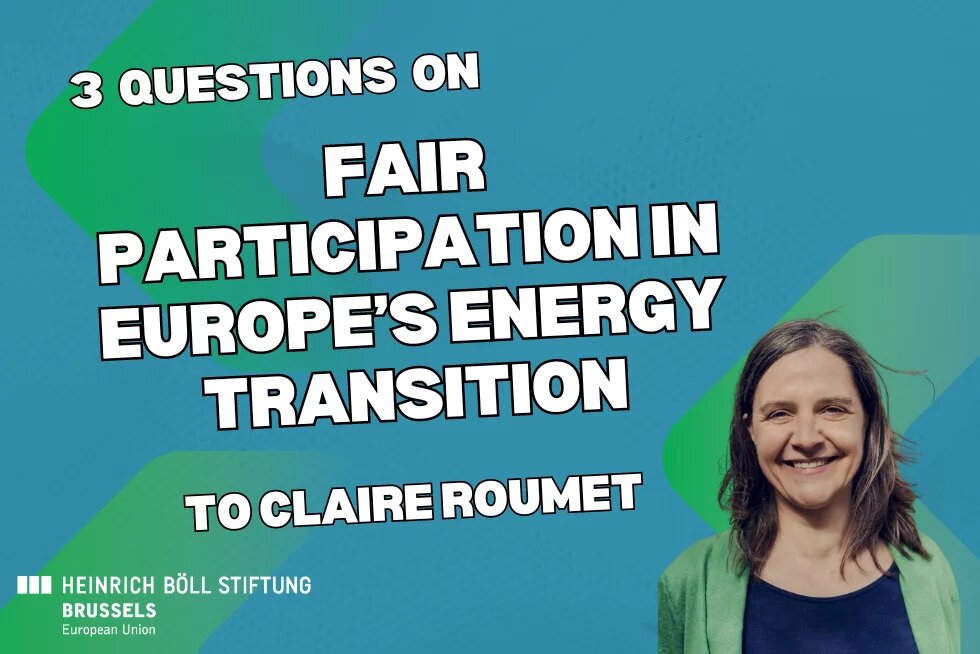The European Green Deal as the flagship project of the Von der Leyen Commission has laid the cornerstone for a climate-neutral EU latest by 2050. While there is broad consensus that renewables will protect economies against fossil fuel price hikes, energy bills are still sky-high. When the EU accelerates its shift to a clean and efficient energy system, how can citizens benefit better from this transition? Local authorities play a key role in facilitating citizens’ access to renewables and energy savings measures. Jörg Mühlenhoff asked three questions to Claire Roumet who is part of the Overall Coordination Team of Energy Cities, the network of several hundred European municipalities gathering frontrunners and energy transition beginners, city officials and technical experts.

Why are local authorities important for fair access to energy?
Energy transition means to move from a centralized system to a decentralized one with energy sources of production locally implemented, so by definition cities have an important role to play to ensure its implementations and be aware that the energy is accessible for everyone. One way to do that is by taking part to energy communities which have the question of fair access at the heart of their action. Moreover, local authorities must also support buildings renovation at local level which is very important when we speak about energy sufficiency and efficiency. Indeed, today it’s the poorest who live in badly isolated housing and therefore they have the highest energy bills. This is really unfair and local governments are setting up actions to answer this issue such as one-stop shops to provide information on available renovation grants.
How does the EU empower local authorities that engage in their energy transition?
The EU Green Deal gives a lot of missions to cities in terms or energy transition and at Energy Cities we consider that it’s a very good thing as cities have the legitimacy and the will to do. We need to highlight the initiatives taken by the EU to boost and support energy transition in cities such as the EU Missions for climate neutral and smart cities which give funds and puts the spotlights on good practice. Nevertheless, the question of means is still open. According to various studies, to ensure new obligations, the investment budget of local authorities should be doubled, as well as in term of human resources. To call for more means and reveal these needs we decided to write a publication to summarise all the opportunities and responsibilities given to cities by the Green Deal. We did it in partnership with Eurocities and it is available on our website.
What should the next European Commission do to better protect citizens against energy price hikes?
Energy transition means also more renewables which are no more expensive than energy fossils ones contrary to what you may sometimes hear. It is also synonymous with autonomy and independence. Indeed, we are currently dependant for importations and geopolitical context outside is responsible for a large part of energy price variation. So, we call the next European Commission to continue supporting renewables in parallel of a reduction of the fossil’s consumption. We will be vigilant about that because the risk is that renewables only come in addition to existing energies (at Energy Cities we believe in energy sufficiency). Moreover, the reform of the European electricity market makes progress to protect citizens against energy price but it is still based on a centralised system, in favour of fossil fuels. Therefore, this is not in adequation with the idea of energy transition. We finally ask the Commission for more needs, especially to provide financial support to vulnerable citizens to renovate their housing but also supporting the development of local energy communities. Now it’s time to have the capability to do, moving from discussions to action.
The views and opinions in this article do not necessarily reflect those of the Heinrich-Böll-Stiftung European Union.



